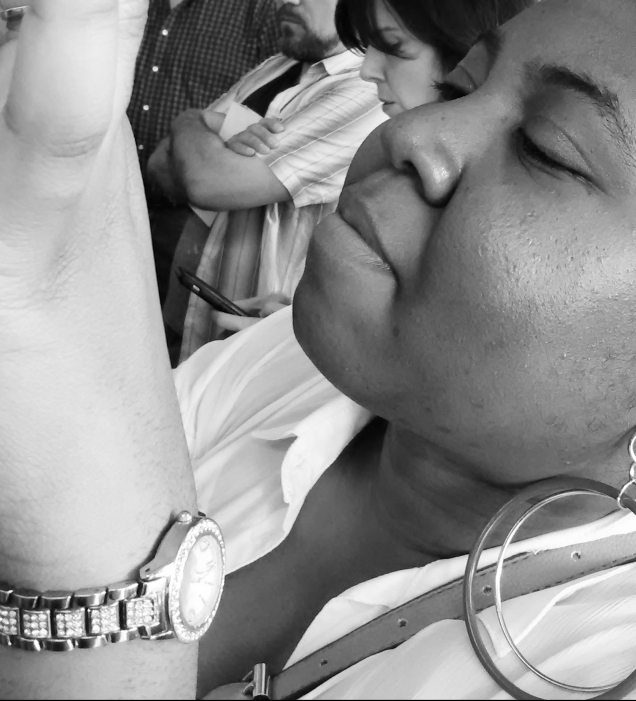
Click here for the full podcast.

Click here for the full podcast.
Earlier this month, Ashley Jones’s Literature of the African Diaspora class welcomed Nettie Weddington (and a few production teams from local news programs) for a memorable class visit. As a teenager, Ms. Weddington participated in the 1963 Birmingham campaign of the Civil Rights movement, which was a powerful catalyst for ending legalized segregation in the South and which produced some of the most searing and lasting images of the struggle for racial equality in America. (For more about Birmingham’s storied Civil Rights “Foot Soldiers,” you might want to check out Weld editor Nick Patterson’s Birmingham Foot Soldiers: Voices from the Civil Rights Movement.) After an enlightening classroom discussion, Ms. Weddington and Ms. Jones led the students as they retraced the Foot Soldiers’ steps to Kelly Ingram Park and the Sixteenth Street Baptist Church — just a few short blocks away from the school — reminding the students (and all of us) that we’re never very far removed from the histories that have shaped us.
This is a trailer for a documentary called People Who Do Noise. It’s about the “Noise” music scene in Portland, Oregon. I offer it as semi-related addendum to Katie’s presentation yesterday. Mostly because it has me thinking about dissonance and its role in contemporary creativity and popular culture.
In response to Katie’s presentation on YouTube “poops,” here’s a TED talk by a guy named Clay Shirky. He thinks about the internet a lot. He’s mostly bullish on it, including something he calls “cognitive surplus” (which would include, according to Shirky, the aforementioned/so-called poops). Pull quote: “The stupidest possible creative act is still a creative act.”
On war and writing. And Millennials. Etc.
 FYI/411: Here’s a link to the NPR piece on WWI masks I referenced in class during 9th period yesterday.
FYI/411: Here’s a link to the NPR piece on WWI masks I referenced in class during 9th period yesterday.
 Here’s a link to a fairly recent interview with Rafe Esquith (via the Washington Post), the subject of the documentary Julianna presented in ninth period on Tuesday. In it, he talks about why he thinks Finland has an advantage over the United States when it comes to school reform, and he articulates his reservations on reform programs in the U.S., such as Teach for America and the Common Core.
Here’s a link to a fairly recent interview with Rafe Esquith (via the Washington Post), the subject of the documentary Julianna presented in ninth period on Tuesday. In it, he talks about why he thinks Finland has an advantage over the United States when it comes to school reform, and he articulates his reservations on reform programs in the U.S., such as Teach for America and the Common Core.
This is a video clip of an interview with Molly Crabapple, one of the artists Dakotah assigned us to research. Bonus: here’s a link to that NY Times article I mentioned during Julianna/Dakotah’s presentation on Crabapple.
In preparation for Ms. Bowser’s visit on Tuesday, she’s asked that we read this on-line article:
This is, of course, the iconic cover of Patti Smith’s Horses (photographed by Robert Mapplethorpe).
Here’s a link to an essay/response to the album on NPR’s All Songs Considered.
And here’s a link to the lyrics for each song on the album.
Check all of that out; we’ll listen to the album in class on Thursday. Weather permitting.